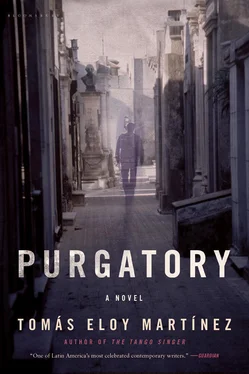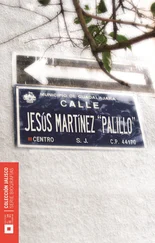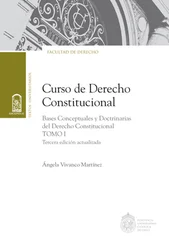‘It breaks my heart just listening to you,’ Emilia said.
‘That’s not the worst. Every night I’d tour the bars, I’d go in, sit down, order a beer and play “Muchacha ojos de papel” endlessly on the jukebox in the hope that the song would make her appear. One night, I told the whole story to the guy behind the bar, I showed him the photo of her I kept in my wallet. I think I saw her in Trelew, he said. Why don’t you try there? Trelew was a slightly bigger town about fourteen kilometres west and the people there seemed more wary. I visited all the places I had in Rawson, but this time I also asked in the prisons. I don’t know how many times I made that tour in every town in the surrounding area, in Gaiman, Dolavon, Puerto Madryn. When I got back to Buenos Aires, I was sure that she’d be there, waiting for me. I never saw her again.’
‘You’re still waiting for her.’
‘Not any more. There comes a moment when you finally resign yourself to losing what you’ve already lost. You feel as though it’s slipping through your fingers, falling out of your life, you feel nothing will ever be the same again. I still think of her, obviously, but I don’t wake up in the middle of the night any more, worrying that she’s lying somewhere ill, or dead. Sometimes I wonder if she really existed. I know I didn’t dream her. I still have a blouse of hers, a pair of shoes, a make-up bag, two of her books. Her name was Emilia too.’
Emilia and Simón were married two years later. Simón gave up working for the newspapers and joined the map-making department at the Argentina Automobile Club where Emilia had been working for some months. They were happy, and happiness was exactly as she had imagined it would be. They talked easily about things that would have made other couples uncomfortable, and upon this mutual trust they built their home life. If she did not discover the same intense pleasure in sex she had heard her friends talk about, she said nothing, assuming that this too would come in time.
Only after Simón disappeared on a trip to Tucumán did she begin to feel racked with guilt that she had not made him happy. She felt painfully jealous of the other Emilia, for whom Simón was perhaps still searching. There were nights when she woke up with the feeling that her husband’s whole body was inside her, sounding her deepest depths, until it reached her throat. It was a pleasure so physical it made her weep. She would get up, take a shower, but when she went back to bed the spectre of the beloved body was still there, emblazoned within her.
Finding him again thirty years later unsettled her. In the past, when she had still been searching for him, she imagined that when she found him, they would quickly slip back into their old routine and carry on with their lives as though nothing had happened. But now, a sort of abyss separated them, a chasm made deeper by the fact that Simón had not aged a single day while she bore the full weight of her sixty years.
Emilia had felt no sense of foreboding when she got up that morning. She liked to lie in bed, to stretch languidly, to linger for a while before heading out to work. It was the best part of the day. After she showered, she would carefully apply her make-up, despite knowing that she was doing it for no one. As the day wore on, the lipstick would fade, the mascara fall from her lashes in tiny flecks. At least once a week she went to a beauty salon to have a new set of sculptured nails applied. She had replaced the previous nails — an orange and violet mosaic pattern — two days earlier and the new ones had a delicate pattern of blue wavy lines. She always breakfasted on toast and coffee, glanced at the headlines in the Home News . Her only friend was Nancy Frears, a librarian at Highland Park. Chela, her younger sister, lived in San Antonio, Texas, with her husband and their three children, and though they called each other on birthdays and at Thanksgiving, they hadn’t seen each other for years. A couple of summers earlier, when Emilia had had her hernia operation, it had been Nancy, not Chela, who stayed with her, helped her shower, tidied the apartment. She could, of course, have found friends who shared similar interests, but she was loath to change the life she lived. A couple of geographers from Rutgers University she sometimes ran into on the train she took to Manhattan had invited her to go to the movies or to dinner. She enjoyed chatting with them on the train, but did not want to take the friendship further. To Emilia, sharing a movie with someone was like sharing a bed. In cinemas, people cry, they sigh, they reveal the flayed flesh of their emotions. She had no desire to be on such intimate terms with the geographers from Rutgers. With Nancy, on the other hand, she didn’t mind. Nancy’s friendship was like a cat or a comfortable eiderdown. Besides, for Nancy, Emilia represented a pinnacle of refinement she could never attain; when they were together she constantly felt she was learning something new, even when Emilia read her poems she did not understand or took her to little art-house cinemas to see classic Mizoguchi films.
Nancy’s favourite quotation was a line from Ezra Pound she had chanced upon in the library. She was drawn to the hidden meaning she sensed in the cadence of the line: How ‘came I in’? 5Was I not thee and Thee? It had a mysterious lilt; she asked Emilia to help her decipher it, and without even changing the order of the words, they managed to shed some light on it. ‘What is it about this line you find so moving?’ Emilia wanted to know. ‘What is unsaid, but hinted at in the folds between the words.’ Sometimes her friend was not so stupid.
Nancy had survived a stultifying marriage. Sid Frears, her late husband, had been a travelling salesman selling synthetic adhesive who left her alone for months at a time. After fifteen years of marriage, pancreatic cancer had carried him off. Nancy had not the slightest interest in changing her life. Sid’s life insurance policy, invested at a fixed interest during the boom years, ensured her an annual income of $22,000. She decided she did not need to work. Her only work was voluntary: from 9 a.m. to 3 p.m. on Saturdays, and 10 a.m. to 4 p.m. on Tuesdays and Thursdays, she worked at the library. ‘What would I want to go out to work for?’ she said. ‘So I don’t feel alone? I’m not that kind of person, Millie. I like my own company. I read People magazine every week, I listen to the Beach Boys, and if I want to fart, I fart. There’s no one to complain.’
More than once, Emilia caught her staring at the photo of Simón on her beside table. Comparing him to Sid and shaking her head. ‘You had a good thing going there, huh, Millie? Was he good in bed?’ Emilia would have liked to tell her that sex with Simón in her imagination was better than it had been in reality, but this was something she would tell no one, something she did not dare admit even to herself. Sometimes, when they got back from bingo, Nancy would gaze at Simón’s broad forehead, his pale, honest eyes, his firm nose.
‘He looks just like Clint Eastwood in Dirty Harry , don’t you think, hon? If he hadn’t died, he’d look like Clint in The Bridges of Madison County now.’
On the Friday when Emilia met Simón at Trudy Tuesday, she had left home at 7 a.m. as she did every morning. It took her forty minutes to drive from her apartment on North 4th Avenue to the Hammond offices in Springfield industrial park. She worried about avoiding the inevitable accidents on Garden State Parkway, the storms that could break suddenly over a two-mile area while in the distance the sun was still shining. Like a taxi driver, she drove with the radio tuned to 1010 AM, which kept her up to date on traffic tailbacks.
The suburbs were endless, indistinguishable, and if, as she sometimes did, she allowed her mind to wander she would somehow end up driving through a strip mall with branches of Wal-Mart, Pep Boys, Pathmark and Verizon Wireless laid out in an arc, beneath louring skies of identical clouds with identical squawking birds. Only the leaves of the walnut trees showed any imagination, distinguishing themselves in autumn as they fell.
Читать дальше












